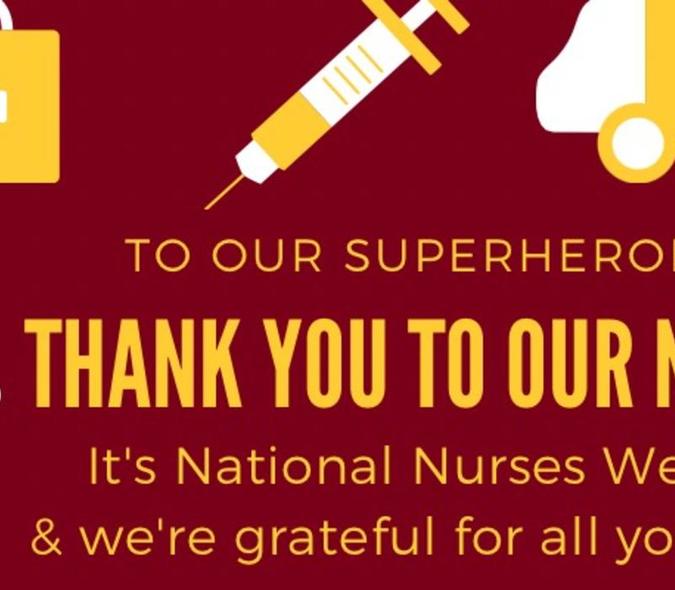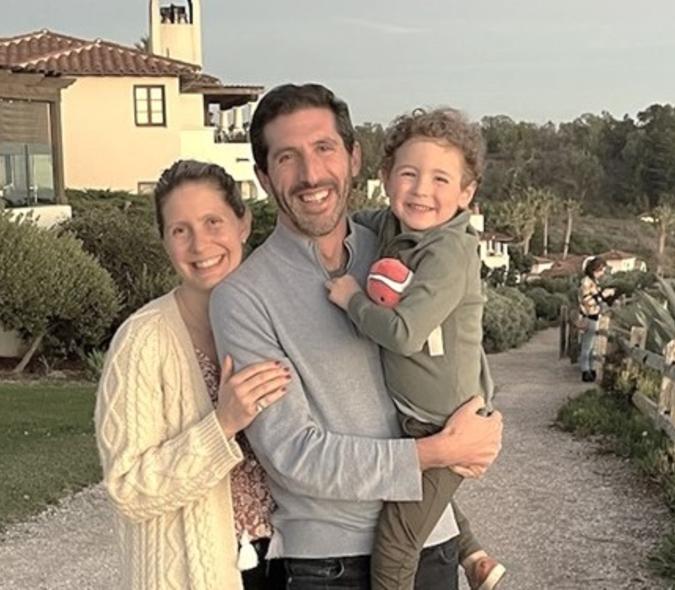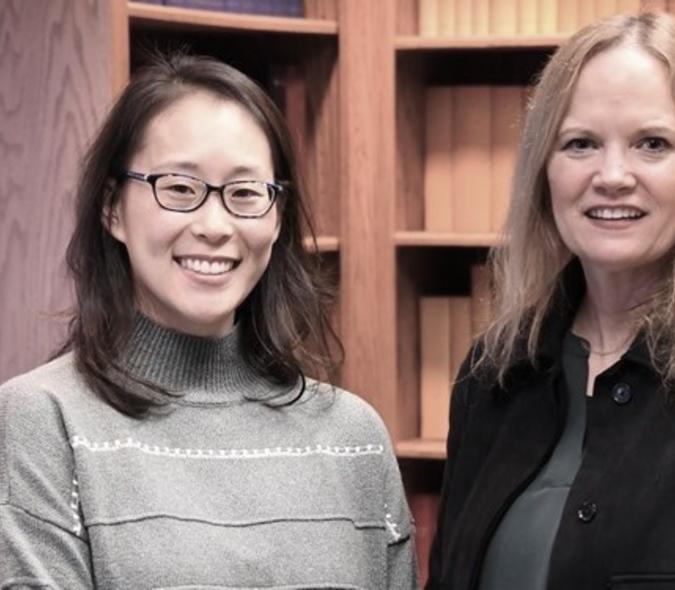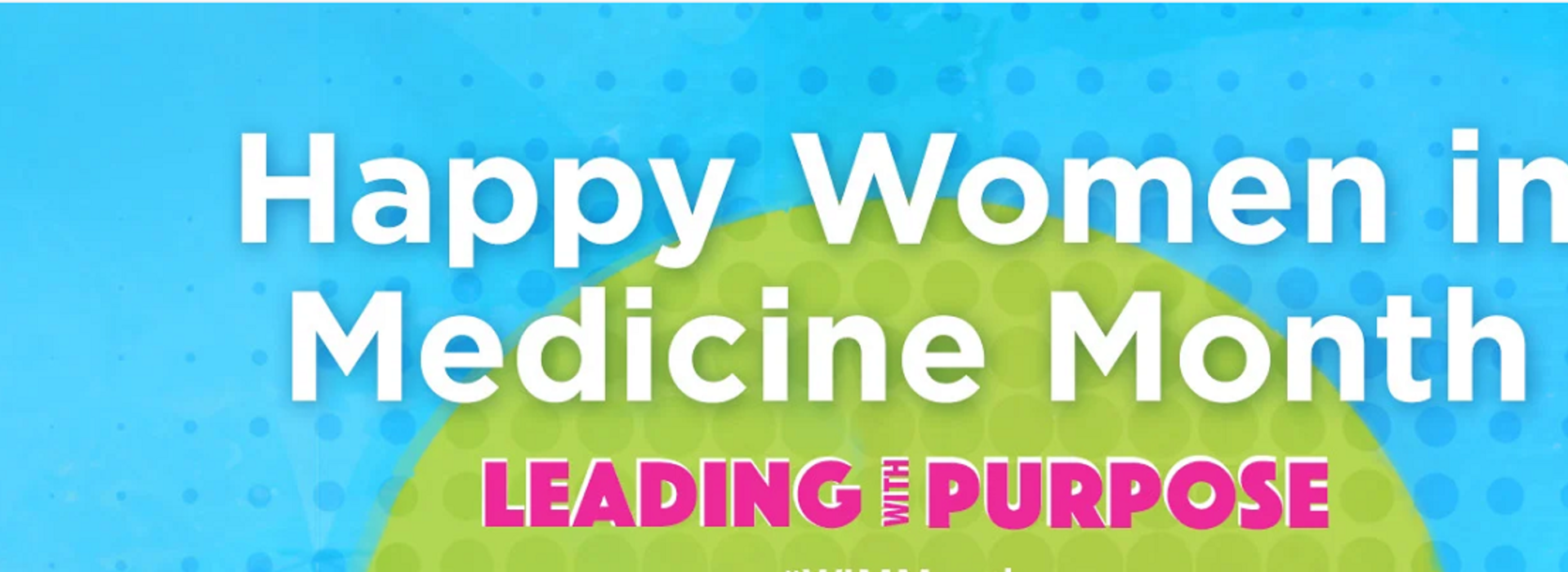
Common themes emerge as members of the department think about Women in Medicine Month
Each September, the American Medical Association Women Physicians Section honors physicians who have offered their time, wisdom, and support to advance women in their medical careers during Women in Medicine Month. This year’s theme, “Leading with Purpose,” underscores how important that support is.
To commemorate the month, we’re highlighting three women in our department, two seasoned professionals and one getting ready to start her career. There are common themes that run throughout their thoughts about the importance of celebrating Women in Medicine Month, themes such as mentoring, building resilience, and having the courage to speak out.
Each interview is summarized here with a link to the full text.
Professor and Child & Adolescent Psychiatrist Suma Jacob, MD, PhD
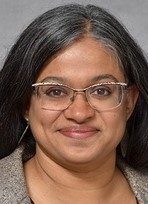
Dr. Jacob (pictured here) has thought about being a woman in medicine – and a woman of color in medicine – a lot. She has done international and national experiential groups work focused on authority, differences, and how groups “other” individuals. To shape what she wanted to say about the importance of celebrating Women in Medicine Month, she drew on threads from multiple aspects of her life … as a mental health provider, researcher, educator, mentor, mother, and as a woman of color. How women in medicine are educated was top of mind for her.
“Medical and residency training are very hierarchical and traditional,” she said. “Some people say it’s like the military – suited for the young who don't question authority. My challenges with that were because I did a much longer MD/PhD program, I had a wide range of educational experiences and had children during this process. This different developmental phase allowed me to see things that needed to change or be challenged.”
Dr. Jacob realized that when she saw those things, she always had to monitor her reactions. “I think the hardest thing about going through medical training were the times I saw people being used, patients not being treated right, and I made the effort to speak up and do something,” she said. “Other times, I had to be very careful about how I spoke up because trainees are in a vulnerable position.”
Having multiple mentors is one of the most important recommendations Dr. Jacob makes to women in medicine. And it doesn’t matter which phase of your career that you’re in. “I have colleagues and friends who are my mentors and are working actively and prolifically, and some are even in their 90s,” she said. “They’re my inspiration.”
Dr. Jacob is concerned that women continue to face challenges in getting a seat at the leadership table in organizations and medicine. “A primary reason for this is outdated career prototypes and expectations,” she said. “They were set up during a time when men, who had someone to take care of everything at home, expected career women to work in the same way and on the same timeline. Organizations are slow to change, and this may explain why training programs are over half women and why organizations have very few women who are fully promoted or who are leaders.”
If you would like a copy of Dr. Jacob’s complete interview, please email her.
Chief Resident Tolu Odebunmi, MBBS, MPH

Leadership is an important focus for Dr. Odebunmi (pictured here), and as a Black woman, representation really matters to her. “I wasn’t raised in the United States, so all my life I was surrounded by people in leadership roles who looked like me,” she said. “Having that experience taught me that it wasn’t something strange; if I wanted to run for or apply for something, I could.”
Throughout her educational career, Dr. Odebunmi has often been in positions where there seemed to be a disconnect between people at the top and people down below. “It felt like no one was taking time to really hear us,” she said. “That’s fueled my desire to be in leadership roles. I want people’s voices to be heard in places where decisions are being made and help them feel well advocated and fought for.”
The challenge she sees is that there aren’t many women or women of color in academic leadership roles in this country. “If I didn’t have my background or my mindset of just going for things, it may have been harder for me to pursue my interests,” she said.
Although not afraid to pursue those interests, Dr. Odebunmi wasn’t always successful. “I realize that it’s difficult to hear no, and if you’ve heard it a couple of times, you might start thinking, why even bother,” she said. “It’s hard in a system that says no and no one else looks like you. You just have to continue to be true to yourself.”
Like Dr. Jacob, Dr. Odebunmi believes that having mentors is an important way for women in medicine to succeed. “As a junior resident, I found mentors who were very supportive,” she said. “They haven’t always been people of color or even women, but they were supportive, nonetheless. They have helped me understand how to achieve my dreams, my goals.”
Professor and Clinical Psychologist Carol Peterson, PhD
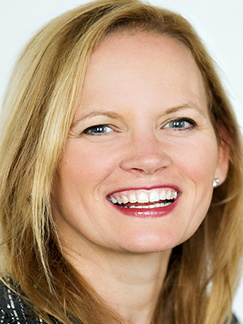
Continuing the thread of mentorship for women in medicine, Dr. Peterson (pictured here) noted that when she entered graduate school in the mid ‘80s, one of the things that helped her was having impactful mentors, leaders, and role models – many of whom were women, some were men. “They helped me understand how to work within a system where there may not always be the support I needed,” she said. “They taught me how to develop resilience, how to work around obstacles, how to get support, and how to draw upon different types of resources. All of that had a profound impact on how I think about how I work with learners and even how I work clinically.”
Working with her mentors also helped Dr. Peterson think about leading with integrity. “I think about that every day when I am working with learners, students, and postdocs – the importance of leading with intentionality, and what kind of impact I want to have,” she said.
For Dr. Peterson, one of the most important pieces related to working long term as a woman in academic medicine is curiosity. “I want to make sure that those I’m working with are prioritizing their efforts around curiosity,” she said. “What brought them into this field, what still excites them to learn, what questions do they want to answer? Sometimes it will be something specific to being a woman and how that works in the context of medicine but sometimes it will be broader – what kind of teacher or leader do you want to be? What motivates you, gives you passion?”
Dr. Peterson believes that there is only so much in academics that can be learned inside the classroom. “It’s more challenging to figure out strategic professional goal setting and the steps that need to be met,” she said. “As much as we can continue to recruit women interested in science, education, and clinical work, we need to make sure they’re getting the information they need to flourish.”
#WomeninMedicineMonth
